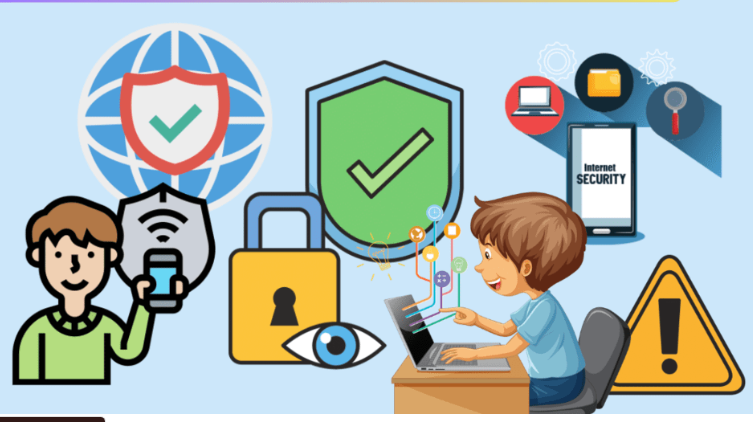Digital Safety Tips for Students

In today’s digital age, students spend more time online for learning, social interaction, and entertainment. While the internet offers great benefits, it also exposes students to risks like cyberbullying, scams, and identity theft. This guide outlines essential digital safety practices every student should follow.
Quick Insight: Teaching digital safety is just as important as teaching math or English. Students need to know how to protect themselves online.
1. Keep Personal Information Private
Never share sensitive information like home address, phone number, passwords, or school details on public platforms or with strangers online.
2. Use Strong and Unique Passwords
Use complex passwords that mix letters, numbers, and symbols. Avoid using your name, birthday, or common phrases. Never share passwords with friends.
3. Think Before You Post
Everything posted online stays online. Avoid sharing photos, videos, or comments that can embarrass you or others, or affect your future reputation.
4. Be Cautious with Links and Downloads
Don’t click suspicious links or download files from unknown sources. They may contain viruses or lead to phishing websites that steal personal data.
5. Know How to Handle Cyberbullying
If you or someone you know is being bullied online:
- Don’t respond or retaliate
- Take screenshots as evidence
- Block the bully
- Report it to a teacher, parent, or counselor immediately
6. Be Mindful of Screen Time
Balance your time online. Excessive screen use can affect your health, sleep, and studies. Take regular breaks and set time limits on device usage.
7. Use Privacy Settings on Social Media
Set your accounts to private, and only accept friend requests from people you know. Review app permissions and location sharing settings regularly.
8. Stay Away from Harmful Content
If you accidentally land on or are sent harmful, violent, or inappropriate content, exit immediately and inform a trusted adult. Don’t engage or share it.
9. Always Log Out on Shared Devices
When using public or shared computers (e.g., in cyber cafés or libraries), always log out of all accounts to prevent unauthorized access.
10. Ask for Help When Unsure
If something online confuses or scares you, talk to a teacher, parent, or school counselor. Never feel ashamed to seek guidance or report suspicious activity.
Final Thoughts
Digital safety is everyone’s responsibility, especially in schools where students are constantly connected. By following these tips, students can enjoy the internet safely and responsibly.
Tip for Schools: Conduct regular digital literacy classes and internet safety awareness weeks to keep your students informed and protected.
